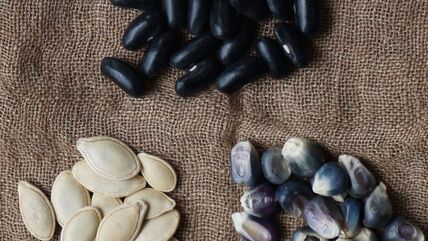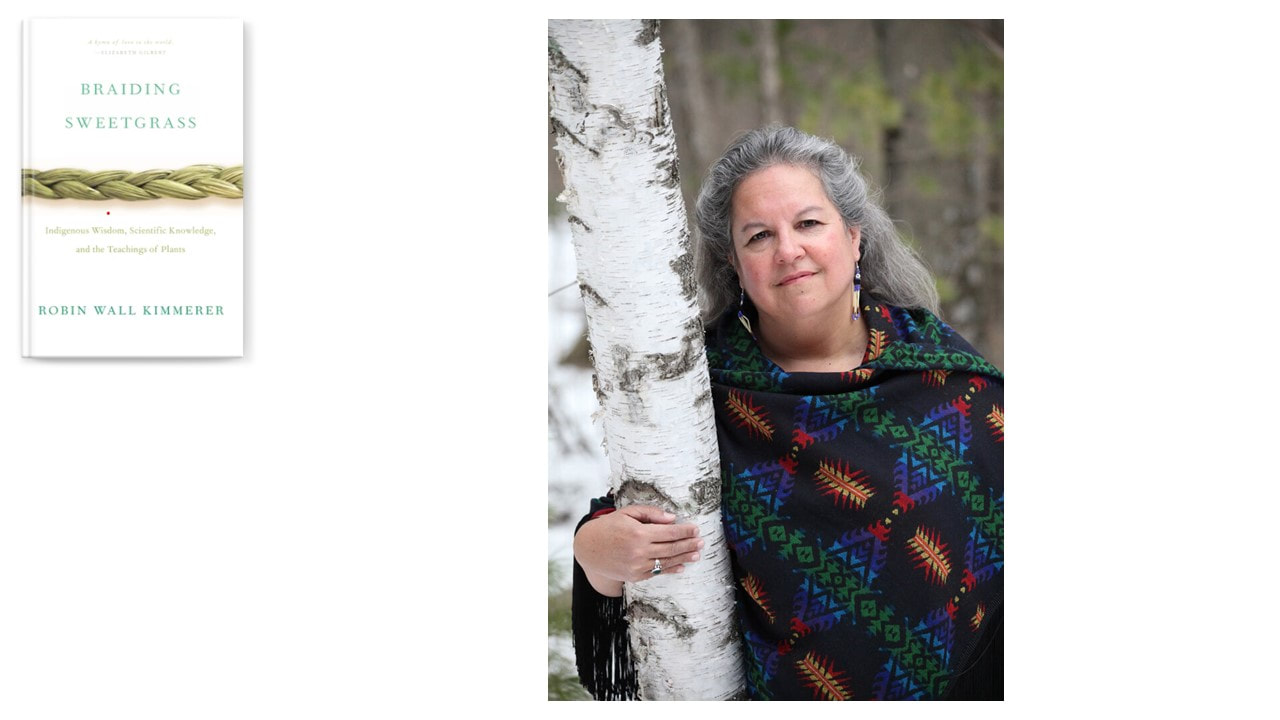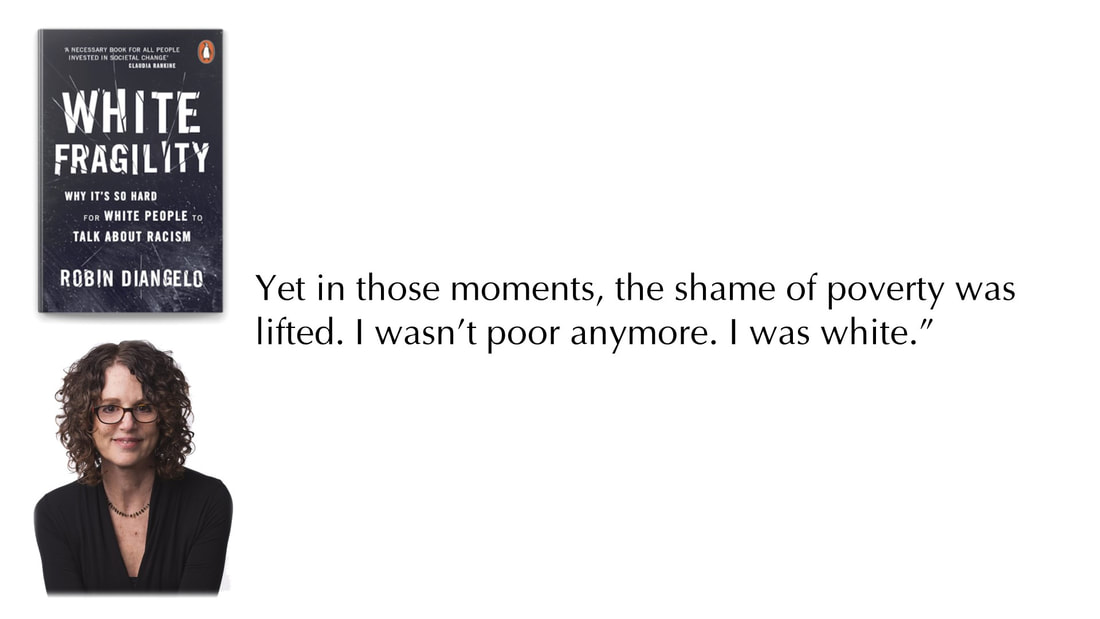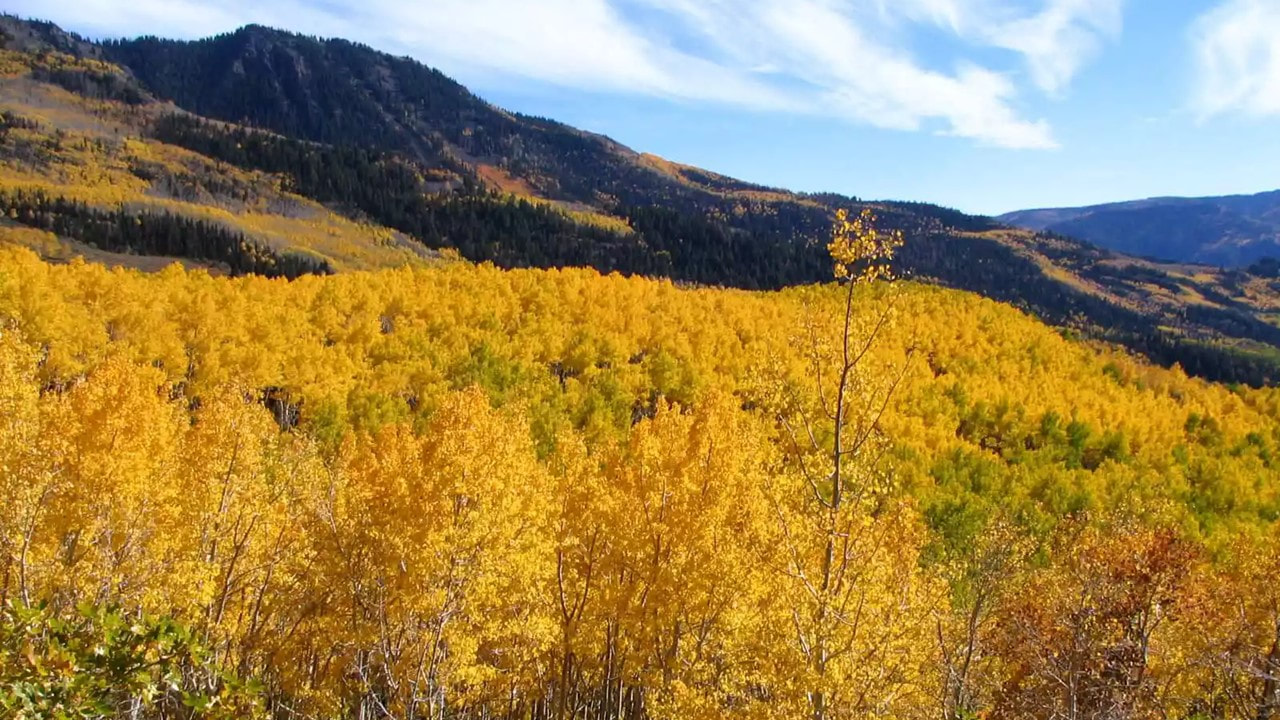Scott Anderson Isaiah 6:1-8 † Psalm 29 † Romans 8:12-17 † John 3:1-17 For perhaps ten thousand years on this continent, long before modern industrial monoculture farming methods became dominant, women mounded up the earth and planted three seeds right next to each other in the ground. Robin Wall Kimmerer tells us of this story of the Three Sisters in her book Braiding Sweetgrass.
Together these plants—corn, beans, and squash—feed the people, feed the land, and feed our imaginations, telling us how we might live. For millennia, from Mexico to Montana, women have mounded up the earth and laid these three seeds in the ground, all in the same square foot of soil.[1] Do you recognize the strands of knowledge and understanding, and mystery Kimmerer is braiding together here as she talks about these plants—corn, beans and squash? The plants feed the people, feed the land. And they feed imaginations. They teach lessons about morality and purpose, about what it takes to live fully, to live well, and to live long—if we have ears to hear (no pun intended).
0 Comments
Scott AndersonActs 4:5-12 † Psalm 23 † 1 John 3:16-24 † John 10:11-18
A video version of this sermon can be found here. Robin DiAngelo’s family was struggling. She and her two sisters were raised in poverty in the 1960s by their single mom: “…we were flat out.” She says. “We lived in our car. We were not bathed.” DiAngelo is the author of White Fragility, I suspect, one of the most important books of our time. It was clear DiAngelo’s mother was helpless and at her wits end. They had no resources and no help. They were hungry, but here’s the kicker: if she would reach out to take, for example, some food someone had left out, DiAngelo’s mother would stop her: ‘Don’t touch that. You don’t know who touched it, it could have been a colored person.’ ‘Don’t sit there. You don’t know who sat there, it could have been a colored person.’ That moment crystalized something for DiAngelo: The message was clear: If a colored person touched it, it would be dirty. But I was dirty. Yet in those moments, the shame of poverty was lifted. I wasn’t poor anymore. I was white.” Scott AndersonJeremiah 31:31-34 † Psalm 119:9-16 † Hebrews 5:5-10 † John 12:20-33
A video version of this sermon can be found here. Unless a grain of wheat falls into the earth and dies, it remains just a single grain; but if it dies, it bears much fruit. Here is the crux, the turning point of John’s gospel. It marks the major turn in the structure of the book. The hour has indeed come, even though we are only halfway through the gospel. “Now is the judgment of this world; now the ruler of this world will be driven out.”[i] We should not miss this. And if we do not understand, we are wise to listen and open ourselves to it until we do. To accentuate the point, we hear not only the voice of Jesus, but the voice of heaven affirm it. In the other gospels—in Matthew, Mark, and Luke—the voice of God is also heard, but at Jesus’ baptism. In John, it is heard here and here only. “I have glorified it—God’s name, that is—and I will glorify it again.” Why here? And what does it mean? This is a strange affirmation to a strange fruit. Perhaps it seems counterintuitive to believe that death breeds life. We do know, though, the truth of this text so central to our Christian faith. We have seen again and again the power of self-giving and sacrifice. Martyrs through history have given themselves so that life would change for the many. Scott AndersonGenesis 17:1-7, 15-16 † Psalm 22:23-31 † Romans 4:13-25 † Mark 8:31-9:1 A video of this sermon is available here. In the 1920s and 30s, towns and cities across the United States tried to outdo one another in building thousands of magnificent public swimming pools for their communities. They were often enormous and elaborate—community gathering places built for a rapidly expanding middle class to enjoy together. There was the Big Pool in Garden City, Kansas. Dug by hand and opened in 1922, the bath house and wading pool were added by the WPA in the 1930s. Elephants from nearby Lee Richardson Zoo swam in it after it closed for the season. In the 1980s in a promotional stunt, two Garden City youth skied on the pool to promote Finnup Park, Lee Richardson Zoo, and the world’s largest outdoor free concrete municipal swimming pool. The pool is currently closed for another face-lift with plans to reopen for a grand centennial celebration.
Scott AndersonEzekiel 34:11-24 † Psalm 100 † Ephesians 1:15-23 † Matthew 25:31-46
A video version of this meditation can be found here. It’s all hindsight. All of it. No one was doing what they were doing in the story because they thought they were doing it “unto Christ.” They were just doing it. The surprise was that it was, or that it is the Holy One in those who were vulnerable. And everyone was surprised!. Everyone was surprised that this would be the thing that would set them apart—right from left, sheep from goats. When did we see you hungry or thirsty, or a stranger or with no clothes on your back, or locked up? Scott AndersonAmos 5:18-24 † Psalm 70 † 1 Thessalonians 4:13-18 † Matthew 25:1-13 A video version of this sermon can be found here. Keep awake! That’s the message Jesus draws from this murky story in Matthew right before the parable of the talents which we’ll see next Sunday. There’s all this detail in the story—a bridegroom, but no bride anywhere to be found; lamps (which are really torches) and oil. Five brought oil, the other five didn’t. It’s not that they didn’t bring enough, they just didn’t bring any, or maybe they didn’t have any. And apparently there’s an all-night oil shop open somewhere down the road. All ten bridesmaids--virgins actually, fall asleep, by the way. All of them. The bridegroom arrives late, seriously late, and five make it into the party and five are shut out. And Jesus tells his listeners to keep awake. Scott AndersonEzekiel 18:1-4, 25-32 † Psalm 25:1-9 † Philippians 2:1-13 † Matthew 21:23-32 Some of the most striking painted rock art in the world is found in the sea caves of Norway’s western coastline. They are located in wild, remote, Arctic areas where peaks plunge into the ocean, hammered by ice and wave actions over millennia. There are twelve such painted caves, containing around 170 simple stick figures, arms and legs stretched wide as if they are dancing or leaping. These are different that the far more common petroglyphs which have been carved into rock here and throughout the world by the ancients. These are paintings, made using iron oxide pigment, daubed using fingers or brushes some two to three thousand years ago by Bronze Age hunter-gatherer-fisher people who made their lives along an isolated coastline. The art that they made was preserved in remote caves in wild places. Scott Anderson1 Kings 19:9-18 † Psalm 85:8-13 † Romans 10:5-15 † Matthew 14:22-33
*A video form of this sermon can be found here or you can see the entire liturgy here. In the Fishlake National Forest, on the western edge of the Colorado Plateau there is a colony of quaking Aspen that is an estimated 80,000 years old. Now, were you walking in the midst of it right now rather than listening to me, it would not be readily apparent. There is no tree in the grove that is anywhere near that age. Cut one down and you might count 80 rings, 80 seasons of growth. Maybe more. Maybe less.[i] But underground, the eighty-year-old trunks are 80,000, a 100,000 years-old if they are a day. Some scientists think even this is a huge undercount, suggesting the forest has been around for the better part of a million years. Every tree here has sprouted from a rhizome mass too old to date even to the nearest hundred millennia, they say. Scott AndersonJeremiah 20:7-13 † Psalm 69:7-18 † Romans 6:1-11 † Matthew 10:24-39
A video of this meditation can be found here. The Jeremiah text caught me this week. I’m sure it’s the moment, the week, the flood of events that have turned our hearts and our attention toward realities that have been in plain sight for centuries and yet less noticed by me, a white male with layers of privilege that buffer my experience. Perhaps you too. My mother never gave me “the talk.” There was no need. I remember, in fact, a night in Marietta Georgia while I was a seminary student. Barb and I were out with some friends—a professor of mine, actually and his wife. I was driving. It’s a blur almost 30 years ago now. I took a right, I think. And then flashing blue lights. Then that feeling in the pit of my stomach. We pulled over, and looking back now, it’s almost as if I was possessed. I was obstinate—I mean more than usual, if you can believe that! Rude even, to the officer. I don’t know why. I can’t even explain it. Even in the moment I had the feeling of floating outside of my body, watching myself, unable to control what I was saying. Perhaps I was embarrassed in front of these friends. There’s no excuse for it. Here’s the thing, though. The officer was professional. He responded in measured tones. The encounter ended, and we were on our way. Had a few factors been different, who knows what might have happened? A black mother knows. Many black mothers know all too well. I suspect, Jeremiah knows. …whenever I speak, I must cry out, I must shout, “Violence and destruction! Scott AndersonActs 17:22-31 † Psalm 66 † 1 Peter 3:13-22 † John 14:15-21
If you get the environment right, every single one of us has the capacity to do remarkable things. Not only that, if you get the environment right, good deeds breed good deeds. When the conditions are right, safety, self-sacrifice, mutual love all increase exponentially. Generosity evokes further generosity. We’ve certainly seen that of late with your remarkable generosity toward this community and the church’s work within it. It builds on itself. Advocacy breeds further advocacy. An advocate shapes an environment of mutual support. Advocacy gets the environment right. In John’s story Jesus speaks of the Spirit as an advocate. “If you love me, you will keep my commandments. And I will ask God to give you another Advocate to be with you forever.” Our Christian tradition understands this in a Trinitarian sense—that the Spirit of God in Christ is now with us forever as an advocate—a force of love absolutely and undeniably for us and for our corporate well-being. A force that abides in the very heart of God. |
St. Andrew SermonsCategories
All
|








 RSS Feed
RSS Feed